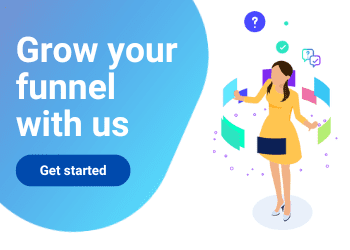Driving Organic Search Traffic With Content
John: Hey everybody. Welcome back to The Life is Digital Podcast. I am here with Chief Strategist, John Parks, how are you today?
Jon: I’m doing great, John. Another day here and I was going call it quarantine land, but it’s not really a quarantine. It’s just staying at home but some of these days are starting to run together a little bit here for me. I wake up and I find myself reaching for my phone, looking to find out, “So is today, Tuesday or Wednesday? Did I accidentally sleep through till Friday? What’s going on? They are starting to blend together a little bit.
John: I’m definitely with you. I think we’ve calculated it’s been about eight weeks now, and I think we’ve all settled into a good groove. We’ve gotten into a new routine so it’ll be interesting in how things restart, going back to what we all was normal now that everybody’s kinda maybe gotten a little comfortable with how we’ve been settling into this.
Jon: I think that’s exactly right. Yeah, it’s… You do find a new level of comfort. I’ve been working from home for years and so it wasn’t too drastic of a change for me. I’ve actually had to adapt to everybody else working from home, so now all of a sudden I’ve got more screen share sessions more calls, those kinds of things that used to be in-person meetings, but it’s a little different, but it is kind of nice. I realize there’s a lot of difficulty out there for many. Don’t want to downplay that by the least but it has been kind of neat to be able to exclusively just work from home.
John: Well, I love that, and I think maybe we’ll have to do an episode on the difference in working from home, or maybe older school style of meetings in person, etc. I still love meeting people in person. I don’t think we’re going to go away from that. But the digital age does provide the opportunity for obviously a lot more technological interaction. So, that’s great segue. I think for our show today, we’ve been talking about content, content creation, how that impacts your marketing, how it impacts the story of your business online. I had the opportunity to be on Facebook Live last week and really, we just took the whole time to talk about storytelling. Before we jump back into that topic for today, I think you had some industry insights you wanted to share, so I wanna kick that back over you. And you had said this was around organic search, right?
Jon: Yeah, absolutely, thanks for bringing that up, because one of the questions that I’ve had and that’s been rolling in the back of my mind, looking a lot of data for our customers and just trying to think about where their businesses is, what’s going on with them, is what’s happening with organic search? We’ve kind of got these conversions of events. There’s more people at home or maybe with a little bit more down time because of the Stay-At-Home orders that have been in place for a few weeks. But what I wanted to know really was… What’s going on with organic search? Are people using that time to now search for more things? Are they coming with more questions? Well, what we’re actually finding is that, while search traffic may still be pretty high, the actual traffic coming to sites from organic search have actually been declining a little bit and it’s gonna vary right from sector to sector. Not everybody is going to see a steep decline at a business like Lowes, or Home Depot. They’ve probably seen a lot of their traffic go up.
I’ve been to Lowes, and I’ve been to Home Depot a few times over the last few weeks and… man, those places are packed. So, I imagine that they’re getting a lot of queries at the top of the funnel of people that are just asking: How do I build this or what would I use for that? And, it’s probably leading to some resources that they have that are probably generating some online sales, but also some in-store traffic for them.
But then you’ve obviously got a lot of other businesses that that’s not their case. Either they’re not able to open right now, or the environment just doesn’t really lend themselves to that type of search query at the moment, and they’ve been seeing pretty significant decline.
So it is something of a concern. Now, we don’t want to just leave with just saying, “Oh gosh, doesn’t that stink that organic search traffic declined over the last few weeks?” In my mind, I’m thinking about what’s next? What’s the next move?
And, that’s really what we want to be focused on.
So, if you have seen that your organic search traffic has declined over the past few weeks, you need to be thinking ahead about… Well, what do we need to do as these restrictions start to be lifted? As people start to get out? As they start to maybe search for or maybe look for what you have to offer?
And I really think this is probably a great way to segue into this conversation about content today, because when you look at organic search, it almost is exclusively turning on the types of content that you’re generating. And, that’s really a big driver and something that I think people are going to need to be paying attention to, especially here over the next few weeks.
John: Well, that’s a great point. So what are the main types of content a business owner should look to produce from what you’re saying and why is that important when it comes to organic search?
Jon: Well, to me, it’s a great question and one we’ve heard many a time from clients and prospective clients. To me it really starts with blogging, and I know that there’s probably some out there listening, or watching this right now and they just gave the complimentary eye roll… “Oh gosh, I don’t really want to write blog posts.” I hear you. Writing is tough. It’s difficult and it’s time-consuming as well, but just hands down, this is one of the best ways to be able to get organic search traffic coming to your site.
Now, there are other things, obviously, that you can do, but blogging really is one of the best ways and the reason is very simple. You’re writing about things that people are curious about. They’ve got questions, you’ve got answers, right? So they ask the question and you write about something that has the answer. So, I think that it really does start with blogging.
John: No, obviously not everyone’s a writer, and there’s a lot of technicalities to creating a blog piece but is there a place to start? And how does that impact your SEO as well?
I’ve heard that also that, that’s important when you’re producing content. We want to consider that from a small business perspective.
Jon: Absolutely, and look, as I said just minutes ago, blogging can be time-consuming. Sitting down to write things, especially if it’s a medium that maybe you’re not as comfortable with, it can be very tedious and take a lot of your time. And, that can be pretty difficult, for you. Here’s what I normally suggest when we’re talking with a client or a prospective client. Let’s start by looking at a tool like Google Search Console. Let’s go through and try to understand… what are people using to find your site today? Or, maybe, what are some queries that you’re showing up for today, but you’re still not getting that traffic? Usually somewhere in there are some questions that people are asking, or some topics that people are talking about or the searching about that they want to know a little bit more about.
That’s a great place for you to be able to jump in and start writing.
And, here’s the thing. Whether you think this or not, and I think we’ve talked about in an earlier episode. You are an expert in your field, right?
Experts just mean that you just have to know just a little bit more than the person that’s actually searching.
You share the things that you know you’re going to be able to help them along on their journey and probably get some search traffic, along the way.
John: That makes absolute sense. And I think another thing that I’ve heard which is really important is understanding the different types of mediums for different channels. So, obviously video is huge, right? People can create videos on their iPhones now. They can produce content that way. What are some of the important ways to use or incorporate video and maybe where is the best channel to deliver video-based content if someone’s not ready to get into writing blogs, but they can still produce some things quickly, on an iPhone?
Jon: Absolutely. Well, video is hot right now, for sure. Lots of people are creating it. It’s circulating and here’s the best part. It’s easy for the consumer to receive it, right? All they’ve gotta do is pull it up and click play, and then all of the sudden, you’re talking to them and you’re telling them the things that you know. And, even if you’re not comfortable with writing, you’re probably comfortable with talking and telling other people about the things that you have information about, the products that you sell, or the services that you provide.
So it’s very easy to step in and do that and your right tools like an iPhone or really any kind of a solid mobile phone today will produce a good high quality video and we’ll leave the technical specs to the experts in that space. We’re really more concerned about the content here and what I really suggest here is that you go into shooting a video with just a basic outline: a structure of what it is that you would like to talk about.
Keep it brief. You don’t have to do this as a 30-minute show. Like would be done on TV. Certainly don’t have to go all the way up to an hour. If you can do a three, four or five-minute video that’s good. That’s a great place to start, especially if you’ve got some really powerful, solid information to be able to share with that search audience. And, then the last thing is circulate it in a place that it’s likely to be viewed. And right now that’s still very much YouTube. YouTube is the place to put your video because it is indexed by Google, search, and when a searcher searches on Google, Google’s gonna slide in a few video results as a part of the search results page, and it’s a great way to get your content seen.
John: That’s a great point, and I think we should dive a little bit more maybe in the next coming weeks into that kind of outline creation and the story telling aspect of really creating great content because that’s where I think companies can set themselves apart. People remember the stories about companies or the origin story of a product way more than they do, just the portal or where they go to purchase it, right? People become associated with their brand because there’s an emotional connection there. So when producing content, I think we have to take that into consideration and say, “Okay this is where the people that I want to serve… this is what’s important to them. How do I connect and relay the message of what’s important to me, which might be the great story and obviously as as a business generating revenue is important, how do we connect and marry those two things? So, maybe as we come to the end a little bit today here, what are some key points you would want to leave our audience with in terms of producing content, because I think we’ll dive into some of these other concepts here in the next couple of weeks.
Jon: Yeah, to me the very first thing you need to get started with is get started, right? Just don’t let the objection stop you. Don’t let the roadblock stop you. Do something. Write something. Record a video. Record a podcast, but do something… Because what you’re going to find is you’re going to learn what works and what doesn’t, what you’re comfortable with and what you’re not comfortable, with what brings traffic, what doesn’t bring traffic. So, simply get started and do something. We talked about this at a previous conversation really just saying, “If you’re gonna be blogging, make a list. Make a list of topics, things that you could write about, things that you already know about and could put together a blog post about. Write those down. Get started. Work with that list. Give yourself a deadline. So, I think that the getting started is really the biggest thing there. The second is pay attention to how that content is being consumed. Are you getting any search traffic at all right, this is where Google Analytics comes into play. You definitely want to make sure you’ve got that enabled and turned on collecting data. If you don’t, we definitely want to talk with you about it, but when you can see that data, that’s going tell you… Are people actually consuming that content, or are they not?
And, then, I think the third thing that I would look for is start sharing it as far and wide as you possibly can. Social media here. That’s your friend, right? So on the organic side, shared personally. Share through a business page. Ask your friends to share it. Send a little goal of, “can we get 100 people to read this blog post?” Go with something like that, just so that you get it out there. Set those little measurable goals. It really is just about building some momentum right now to get things moving.
John: Well, absolutely, and just like with our podcast, if you’re listening today, please subscribe in the comments below. And we want to get to our first 100 subscribers. So go ahead and share this if this content has been helpful and important for you. We’ll be back obviously, every week sharing these important things that I think every business owner should begin to understand and learn now as we’ve made this switch. Really, I think firmly into the digital space. So Jon, I appreciate your time. Thank you so much for being with us today on the Life is Digital Podcast. We’ll be back next week, really diving more into this idea of content, story telling, and maybe even some branding in the next couple of weeks of how you really differentiate your message from those other businesses out there… your competitors and really in front of the eyes of the customer. So, thank you so much, Jon. Well, see you next week.
Jon: Glad to be with you. A lot of fun. Let’s keep it going.






